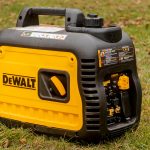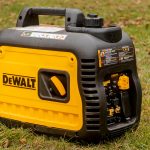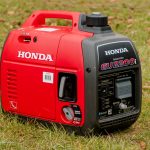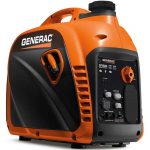When it comes to deciding between a portable generator and a standby generator, both have their advantages and disadvantages. A portable generator is often less expensive and easier to store when not in use. They also provide more flexibility when it comes to location since they are mobile. However, they are often less powerful and may not be able to handle larger loads. Additionally, they require more maintenance than standby generators.
A standby generator is more powerful and can typically handle larger loads. It is also more reliable since it is connected to your homes electrical system. However, it is more expensive to purchase and install, and may require more space for installation. In the end, the best generator for you depends on your needs and budget. If you need a generator for occasional use, a portable generator may be the better option. If you need a generator to power your home long-term, a standby generator is a better choice.
How long can you continuously run a standby generator?
When it comes to portable vs standby generators, one of the main differences is how long they can continuously run. A portable generator is typically designed to run for several hours at a time, with a maximum running time of 8-10 hours. On the other hand, a standby generator is made to run 24/7 for extended periods of time. Depending on the size of the standby generator, it can run anywhere from 24 hours at a time, up to several weeks or even months continuously. Smaller standby generators are usually limited to a few days of continuous operation, while larger standby generators can operate for several weeks or more.
Standby generators are generally more expensive than portable generators due to their longer life span and continuous operation capabilities. They are also more expensive to maintain, as they require more frequent servicing and fuel replacement than portable generators. The main benefit of a standby generator is that it can provide a consistent and reliable source of power without the need to monitor or manually refuel the generator like with a portable generator. This makes it perfect for home and business owners who need reliable power and don’t have the time or resources to frequently check and refuel their generator. Overall, standby generators can provide a more reliable and longer lasting source of power compared to portable generators, as long as you are willing to pay the higher upfront cost and are prepared to maintain the generator on a regular basis.
What are the disadvantages of a portable generator?
A portable generator has some disadvantages when compared to a standby generator. Firstly, portable generators are not as reliable as a standby generator. They typically have a shorter life span and require more maintenance than a standby generator, due to their portability. Furthermore, portable generators are much less powerful than standby generators, generally offering a maximum output of around 7,500 watts. Additionally, portable generators are much noisier than standby generators and can be a nuisance to neighbours if used for long periods of time. Finally, portable generators pose a risk of fire hazards due to their high fuel consumption, so it is important to take proper safety steps when using one. All in all, a portable generator can be a reliable option but comes with a few disadvantages.
Can a portable generator be used as a standby generator?
A portable generator can be used as a standby generator in certain circumstances. It is a great option for applications with small power requirements, like powering a medical device or a few lights. The portability of the generator makes it ideal for situations where the generator needs to be frequently moved, or when space is limited. However, portable generators are not ideal as a long-term standby solution due to their limited power output capacity. They are better suited for short-term emergency needs rather than as a backup power source.
Standby generators are much larger and heavier than portable generators and are better suited to provide backup power for a longer period of time. They are designed to be connected directly to the electrical system of a building and provide a consistent source of power in the event of a power outage. In summary, for short-term emergency needs, a portable generator can be used as a standby generator, but for long-term backup power, a standby generator is more reliable.
How long can you continuously run a portable generator?
Portable generators are a great choice for those who need temporary power for activities such as camping, tailgating, or construction. Portable generators are quite convenient as they can be easily moved from one place to another. However, when compared to standby generators, they have shorter run-times and are not suitable for extended periods of use. So how long can you continuously run a portable generator? Generally, you can expect a portable generator to run up to 8-10 hours on a full tank depending on the size of the tank and the load you are running. It’s important to remember that portable generators should be refueled before the fuel tank runs dry to ensure optimal performance.
It’s also important to note that portable generators are not designed to be run continuously for extended periods of time. If you need to run a generator for long periods of time, it’s best to opt for a standby generator. Standby generators provide more power and have longer run times, so they are more suitable for extended use. In conclusion, portable generators are great for short-term use and can provide up to 8-10 hours of continuous power. However, for longer run-times, it is best to invest in a standby generator.
Are standby generators safer than portable generators?
When it comes to portable vs standby generator, there is no clear answer as to which one is safer. Both have their respective advantages and disadvantages. Standby generators are connected directly to a home’s electrical system and are automatically triggered by a power outage. This means that they are ready to go when the power goes out and can provide reliable power without having to manually start the generator. They are also designed to shut off automatically when power is restored.
On the other hand, portable generators are typically powered by gasoline and must be manually started and shut down. This means that there is a greater risk of user error, such as forgetting to turn off the generator or running it out of fuel. Both types of generators should be used with caution to ensure safety. Standby generators may be safer in that they are less likely to be forgotten about and are designed to turn off when power is restored. However, portable generators can offer the convenience of being moved around and used in different locations without the need for professional installation. Overall, the choice between a portable or standby generator will depend on your needs and the specific environment in which you are using it. Both have their own safety features and it is important to make sure that you understand the different safety considerations involved.
What is the life expectancy of a standby generator?
The life expectancy of a standby generator depends on a few factors, such as the quality of the generator, the type of fuel it uses, and how often it is used. Generally, a standby generator will have a life expectancy of between 8 and 20 years. On the other hand, portable generators are not designed to be a permanent solution for power outages. These generators are usually powered by gasoline or diesel, and are used for short-term applications such as camping trips, or emergency situations. Portable generators typically have an average life expectancy of 3-5 years, depending on the quality of the generator and how often it is used. In conclusion, the life expectancy of a standby generator varies depending on the type of generator and its usage. Generally, standby generators have a lifespan of 8 to 20 years whereas portable generators have a much shorter lifespan of 3 to 5 years.
Is a standby generator worth it?
When it comes to portable vs standby generators, there is often a difficult decision to make. A portable generator is a great option for those who need a temporary and easily transportable solution. It is often used for powering tools and appliances during work on the go or in places without electricity. On the other hand, a standby generator is a permanent installation that automatically shuts on when the power goes out. It is ideal for providing continuous backup power to homes and businesses.
It is more expensive than a portable generator, but it is worth it if you need reliable and long-term protection against power outages. Standby generators are programmed to kick on when a power outage is detected, providing electricity to your home or business quickly and reliably. They can also be equipped with a transfer switch, which safely isolates the generator from the utility power and prevents any back-feeding. In addition, standby generators are generally quieter than portable generators, and they don’t require manual refuelling. They are also much larger and more expensive, so you need to weigh the cost of installing a standby generator against the cost of replacing or repairing items damaged by a power outage. Ultimately, it is up to you to determine if a standby generator is worth it. If you need consistent and reliable backup power, then a standby generator is your best option. However, if you rarely experience power outages, then a portable generator may be more suitable for your needs.
How long can a standby Generac generator run non stop?
When it comes to portable vs standby generators, one of the key questions is how long a standby Generac generator can run non stop. A standby Generac generator is a type of home backup power supply that kicks in automatically during a power outage. It is typically more powerful than a portable generator and is considered a long-term solution for home backup power. The amount of time that a standby Generac generator can run non-stop depends on the size of the generator and the load it is powering. In general, a standby Generac generator that is powered by a 200-amp service can typically run non-stop for 24 hours.
However, if the generator is powering only minimal loads like a few lights and a refrigerator, it can run for days on end. This is why standby Generac generators are a great long-term solution for home backup power. Furthermore, standby Generac generators typically come with a variety of features that make them easier to manage. For instance, they may have auto-start capabilities, fuel gauges, and built-in safety features that are designed to protect the power supply and the home. They may also come with a digital control panel that makes it easy to monitor the power supply and make adjustments as needed. Overall, standby Generac generators can run non-stop for an extended period of time, depending on the size of the generator and the load it is powering. They are a great long-term solution for home backup power and come with a variety of features that make them easier to manage.
What s the difference between portable and standby generators?
When it comes to generators, there are two main types: portable generators and standby generators. Portable generators are designed with portability in mind. They are smaller in size and are great for taking on camping trips or using on the job site. They are powered by gasoline and require manual setup for operation. They are usually less expensive than standby generators.
Standby generators are much larger and more powerful than portable generators. They are permanently installed at a home or office, and are used to provide back up power in the event of a power outage. Standby generators also require a fuel source and manual setup, but they are more expensive than portable generators. The main difference between portable and standby generators is the size and power of the generator, as well as the cost. Portable generators are smaller and less expensive than standby generators, but they are less powerful and cannot provide a long-term back up power source. Standby generators are larger and more expensive, but they can provide a reliable back up power source for extended periods of time.
What is the best portable generator for home?
There are two types of generators to consider when looking for the best portable generator for home use: portable generators and standby generators. Portable generators are small, lightweight and easy to transport, making them ideal for camping trips and emergency situations. They are typically powered by gas or propane and can be used to operate lights, appliances, and other essential equipment. Standby generators, on the other hand, are larger, stationary units that are permanently installed outside your home. They are usually powered by natural gas or propane and are equipped with their own transfer switch so they can be seamlessly integrated into your homes electrical system.
Standby generators offer the convenience of never having to manually start the unit, as they are designed to automatically detect an outage and start up automatically. When it comes to choosing the best portable generator for home use, it really depends on your needs. If you are looking for a generator to take camping or to use in emergency situations, then a portable generator will likely be your best choice. For more reliable, around-the-clock power, a standby generator is the way to go. No matter which type of generator you choose, make sure to do your research to find the best model for your budget. Research features like wattage, fuel type, noise level, and the amount of power outlets the machine has. Additionally, some models come with additional features like remote start, which allows you to start the generator from inside your home. In the end, choosing the best portable generator for home use depends on your specific needs and preferences. Whether you are looking for a portable generator for camping trips or a standby generator for around-the-clock power, researching the features and benefits of each type of generator will help you make the best decision.
What are the best portable electric generators?
Portable electric generators are a great way to provide reliable backup power in the event of a power outage. They offer convenience, as they can be wheeled around and used almost anywhere. Portable generators are ideal for camping, tailgating, recreational activities, and home use. When it comes to power output, portable generators are generally less powerful than standby generators. However, the best portable electric generators can provide enough power for essential appliances and tools such as fridges, furnaces, sump pumps, lights, and tools.
When choosing a portable generator, it is important to consider the wattage requirements of the appliances and tools you will be powering. The size and type of the engine should also be taken into consideration. Gasoline powered generators are generally the most popular choice, as they are the easiest to find and cheapest to buy. When comparing portable vs standby generator, it is important to consider the size of the generator, the type of fuel it uses, and the number of outlets it has. Portable generators are generally smaller in size and require less maintenance than standby generators. They are also easier to transport and store. In general, portable electric generators are a great choice for providing reliable backup power in the event of a power outage. They offer convenience and can be used almost anywhere. When choosing the best portable electric generator for your needs, you should consider the type of fuel it uses, the size of the generator, and the wattage requirements of your appliances and tools.
How do you run a portable generator?
When considering purchasing a generator, you may be torn between a portable and a standby generator. Both types of generators can provide convenient and reliable power, but they work in different ways. A portable generator is a great choice if you need on-the-go power. To run a portable generator, you must fill it with fuel, such as gasoline or diesel, and then turn the generator switch to the on position. Depending on the model, you may also need to pull the starter cord or press a start button.
Once the generator is running, you will need to plug in any appliances you need power for. Portable generators are lightweight and easy to move around. However, they require continual monitoring and refueling, so they cant provide power for a long period of time. They also arent as powerful as standby generators, so youll need to be aware of their wattage limits. Overall, running a portable generator is relatively straightforward. Just make sure you follow the manufacturers instructions for your model and never use the generator indoors. With the right precautions and maintenance, a portable generator can provide reliable and convenient power when you need it most.
Are standby generators worth the money?
When it comes to portable vs. standby generators, the question of whether they are worth the money is a reasonable one. Portable generators are great for temporary or emergency power needs and can be moved around as needed. Standby generators, on the other hand, are permanently installed and usually last longer. The primary benefit of a standby generator is its long-term cost savings.
It doesn’t need to be refueled as often as a portable generator, and it can be used more efficiently over a longer period of time. It also saves you money, as there is no need to pay for the installation and operating costs associated with a portable generator. Standby generators are also a great solution for those who live in areas prone to power outages. Having a standby generator ensures that you will always have an emergency power source, no matter what the weather. In addition, standby generators are much quieter than portable generators, making them a great choice for those who dont want to be disturbed by the noise. Overall, standby generators are a great investment for those who need a reliable source of emergency power. They are more cost-effective in the long-term and provide a more consistent power source. Plus, they are much quieter than portable generators, making them a great choice for those who need a reliable source of emergency power but dont want to be disturbed by the noise. So, yes, standby generators are worth the money.
Can you write off a generator on taxes?
When it comes to generators, there are two main types: portable and standby. Portable generators are typically used for occasional power outages, while standby generators are more permanent installations that provide constant power. The question of whether you can write off a generator on taxes depends on the type of generator you purchased. If you purchased a portable generator, you may be able to claim a deduction when filing your taxes. However, if you purchased a standby generator, you may be able to deduct the cost of the generator itself, as well as the installation and any related costs.
In order to determine whether you can claim a deduction, you will need to consult a tax advisor. They will be able to review your individual situation and let you know what deductions you may be able to claim. When filing your taxes, make sure to keep all receipts associated with the generator, including purchase and installation costs. This will make it easier to claim any deductions you are eligible for. Overall, you may be able to write off a generator on your taxes depending on what type of generator you purchased and the associated costs. Make sure to consult a tax advisor if you are unsure of your eligibility for deductions.
What are the advantages of the standby generator compared to portable generators?
Unlike a portable generator, a standby generator is permanently installed and connected to the homes electrical system. It is then activated automatically when the power goes out. One of the main advantages of a standby generator is that it is more reliable than a portable generator. It will automatically turn on to provide your home with power during an outage, so you don’t have to worry about starting the generator each time. Installation of a standby generator is also much easier than that of a portable generator.
Unlike portable generators, standby generators require a more permanent installation and must be connected to your homes electrical system. This makes the installation process much quicker and easier. In terms of power output, standby generators are often much more powerful than portable generators. Standby generators are available in a variety of sizes and can provide enough power to run your entire home. Portable generators, on the other hand, are limited in their power output. Finally, standby generators can often be used in conjunction with other home energy sources, such as solar panels or wind turbines. This allows you to take advantage of renewable energy sources when the power goes out, providing you with a more reliable source of backup power.
How much should I expect to pay for a standby generator?
The cost of a standby generator will vary depending on the size and fuel type. Generally, a portable generator will cost less than a standby generator, as it is designed for temporary use and is typically smaller in size. Standby generators, on the other hand, are meant to provide a permanent power source and are larger in size than portable generators. As a result, they are more expensive and can range in cost from a few hundred dollars to several thousand dollars depending on the size, model, and fuel type. When deciding on a standby generator, it is important to consider the power needs of your home or business.
For example, a smaller generator may be sufficient for a small home, while a larger model may be necessary for a business. To get an idea of how much you can expect to pay for a standby generator, you can read online reviews and compare prices between different models and manufacturers. Additionally, you can consult a professional to determine the best model and size for your needs. In conclusion, the cost of a standby generator will depend on the size, model, and fuel type. You may be able to save some money by researching and comparing different models, but it is important to ensure that the generator you choose is sufficient for your power needs.
Should I get a portable or standby generator?
Deciding between a portable generator or a standby generator can be a tough decision. Portable generators are great for a variety of needs, such as providing power for camping trips, tools, and other temporary uses. Standby generators are typically used as back-up sources of power in the event of a power outage. The main advantage of a portable generator is that they are smaller and easy to move, making them great for when you need to take them with you. They also tend to be cheaper than standby generators.
On the other hand, standby generators are more powerful and are designed to provide reliable power for extended periods of time. When deciding between a portable or standby generator, consider the needs of your application. If you need a generator to use on the go, a portable generator may be a better choice. If you need a generator to be ready for a power outage, a standby generator is the way to go. No matter what your needs may be, it is important to know the pros and cons of each type of generator before making a purchase. Consider factors such as size, cost, and power output before making your decision. With a little research, you should be able to find the perfect generator for your needs.
Do you need a portable or standby generator?
If you need to generate electricity in a location without access to the grid, you might be considering a portable or standby generator. Portable generators are typically smaller and less powerful than a standby generator, but have the advantage of being portable, meaning you can move them from place to place as needed. Standby generators are typically larger and more powerful than a portable generator, but they are not portable and must be installed in a fixed location. They usually require a professional to install and they are connected to your home or businesss electrical system. Standby generators are designed to kick in when the main power supply fails, meaning they are more reliable and provide more consistent power.
The decision between a portable or standby generator depends on your needs and the power that you require. If you need a more reliable and powerful source of electricity, then a standby generator is probably a better choice. But if you need to move power around or to different locations, then a portable generator may be the better option. If you are unsure which type of generator is best for your needs, it is best to consult with a professional who can help you make an informed decision. They can assess your requirements and advise you on the best option for your needs. Both portable and standby generators can provide you with a reliable source of electricity, so it is important to research which one is best for your unique situation.
What to consider when buying a standby generator?
When it comes to buying a standby generator, there are two main types of generators to consider: portable and standby. Portable generators are great for short-term use, such as camping and tailgating, but they may not be able to power your entire home in the event of a power outage. A standby generator is made to be a permanent solution and has enough power to run your entire home or business. When choosing between a portable and standby generator, you have to consider the size of your home and how much power you need. If you only need to power a few appliances, then a portable generator may be more suitable.
But if you need to power your entire home, then a standby generator is the way to go. You also need to consider the noise level of a generator. Portable generators are typically louder than standby generators, so if you are in an area where noise pollution is an issue, then a standby generator may be the better option. Another factor to consider is the pricing of the generator. Portable generators tend to be cheaper, but you may need to invest in a standby generator in the long run if you want to ensure a constant power supply. Finally, you should research the setup and maintenance of the generator. Portable generators are typically easier to install and maintain, but standby generators require professional installation and more frequent maintenance. Consider these factors when deciding which type of generator is right for you.
How much does a standby generator cost to install?
When it comes to portable vs standby generators, the installation cost is one of the primary differences. A portable generator is much more affordable to install due to its simpler design and lower cost of materials. Most portable generators can be installed for around $500 or less. On the other hand, a standby generator is more expensive to install. This is because of its more complex design and the higher cost of materials.
Standby generators can be expensive to install, ranging from $2,500 to $10,000 or more. Apart from the cost of installation, the cost of the generator itself is also a factor to consider. Portable generators are usually cheaper than standby generators, with prices ranging from $300 to $3,000. Standby generators typically cost between $2,000 and $10,000. For those who need a reliable power source, a standby generator can be the best option. The cost of installation may be higher, but the reliability and convenience of a standby generator more than make up for it. In conclusion, the cost of installing a standby generator varies depending on the size and complexity of the generator. However, the cost of a standby generator is usually much higher than that of a portable generator, ranging from $2,500 to $10,00 or more.






